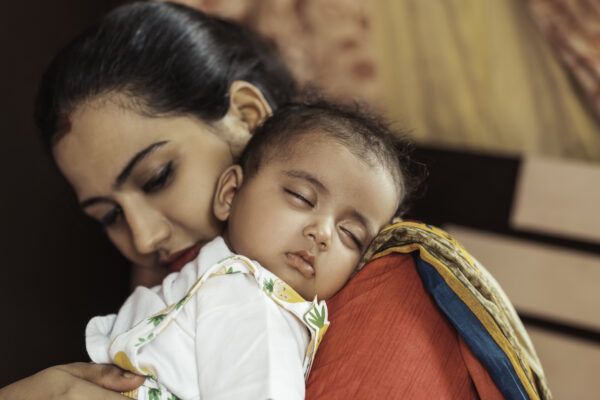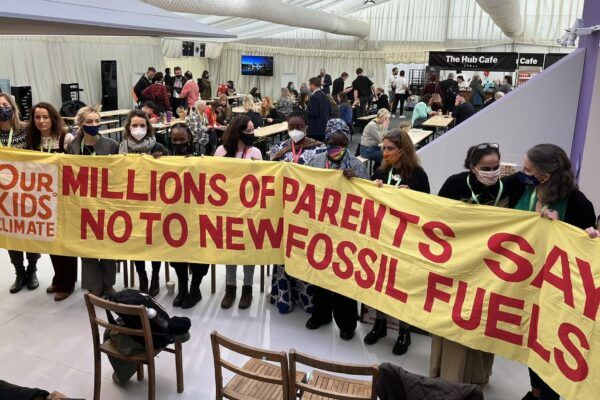Air pollution resulted in the deaths of 476,000 newborn babies worldwide in 2019 and accounted for 14% of all deaths in children under five across Africa. The healthcare community is critical to ensuring children breathe clean air.
Our recent webinar on Cleaning Our Children’s Air brought together Dr Camilla Kingdon, President of the UK’s Royal College of Paediatrics and Child Health (RCPCH) UK, and Dr Kumar, Founder of India’s Lung Care Foundation, to discuss how healthcare practitioners can protect children.
1. Combine real life stories with science
As a neonatologist, Dr Kingdon knows a baby’s health is highly dependent on the mother’s wellbeing and children from more deprived backgrounds do not get an equal start in life. The RCPCH recently declared a climate emergency, recognising the major threat of climate change to child health globally. Around the same time, Dr Kingdon met Rosamund Adoo-Kissi-Debra, mother of Ella, whose death at the age of 9 was caused by air pollution along one of London’s busiest roads. Rosamund challenged Dr Kingdon to realise that even the air we breathe isn’t equal.
As health professionals, the stories we tell and the messages we give are listened to. We have a responsibility, especially as we understand the size and scale of this problem.
Dr Camilla Kingdon
In Delhi, thoracic surgeon Dr Kumar noticed an alarming shift in the demographic of his patients. He used to see pictures of healthy pink lungs in most of his patients, and his lung cancer patients tended to be older men who were heavy smokers. Today, he sees blackened lungs in people who have never smoked, including teenagers. Half of his lung cancer patients today are non-smokers, a shift that he puts down to air pollution and continues to document.
2. Empower parents and communities
Closing the gap on diagnosis of asthma and lung conditions in children is vital. Dr Kumar’s study of asthma in school children in Delhi found that over half of 1,100 children had persistent respiratory symptoms, yet most had not been diagnosed. Diagnosis ensures children get appropriate treatment, while educating their families and caregivers to mitigate exposure to air pollution.
My dream is that these pictures – the contrasting normal pink lung and the black lung – reach every person on earth, to know what’s happening inside their chest. I can save far more people from lung disease by speaking out than I can through surgery.
Dr Arvind Kumar
Dr Kingdon urges health workers to consider wider contributing factors to the children’s health conditions. Equipping young patients and parents with the tools to track air quality in their local area – such as addresspollution.org in the UK – empowers parents to take simple measures, like changing the route of the walk to school, to ease their child’s symptoms.
Knowledge is power, and we also need to give that power to our patients and their parents to help people take control over what can feel like an unbearably insurmountable problem.
Dr Camilla Kingdon
3. Present the evidence to policymakers
Dr Kumar recommends health workers engage with policymakers to raise awareness of air pollution as a major driver of death and disease.
We doctors need to shout loudly that air pollution isn’t just an environmental issue, it’s also a health issue. This should be the focus of all negotiations around the world.
Dr Arvind Kumar
In the UK, the RCPCH teamed up with the Royal College of Obstetricians and Gynaecologists to show government and parliamentarians the harm that air pollution causes to babies’ health.
There’s evidence that women exposed to air pollution are at greater risk of miscarriage, and a recent study showed that particles of black carbon breathed in by the mother reach the placenta, cord blood and all the organs of the foetus. As young children breathe much faster than adults, and because they are shorter and closer to car exhausts, they are more susceptible to air pollution their less-developed immune systems are less able to cope.
Dr Camilla Kingdon
4. Call for policy action and accountability for clean air and children’s health
Dr Kingdon emphasises the need to compare epidemiological data to identify what some countries are doing better than others. Children in the UK, for example, have a far greater rate of emergency hospital admissions and deaths for asthma than children in Europe or other OECD countries. Work is needed to understand the role of air pollution, and what can be done to keep improving air quality and child health outcomes.
In the UK, the RCPCH is calling on Parliament to adopt Ella’s Law, named after Rosamund’s daughter – a Clean Air and Human Rights Bill, which has just been approved by the UK House of Lords and will be considered by the House of Commons.
Showing the reality of what air pollution is doing to all the organs of your body is so powerful. Every time I see a black lung, a person in their 20s with lung cancer, I get motivated. We need motivated healthcare professionals with simple, easy-to-understand messages. We need to build a movement so strong that politicians have no choice but to act – if their seats, if their votes are in danger – they will do what they ought to.
Dr Arvind Kumar
More information
- Cleaning Our Children’s Air is a new webinar series by the Clean Air Fund, looking at what can be done to reduce the impact of air pollution on babies and children. The next webinar will take place on 26 January and explore successful campaigns for clean air for children around the world.
- RCPCH toolkit to support paediatricians approaching their local councils about air pollution
- Climate change | RCPCH
- Dossier for health professionals on air pollution

